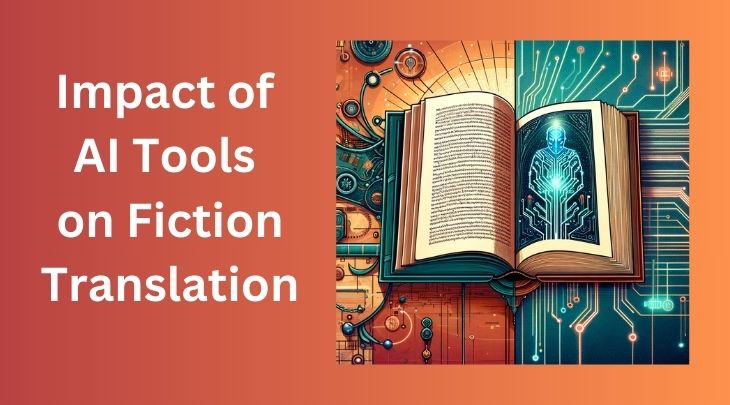The Impact of AI Tools Like DeepL on Fiction Translation and my Personal Experience
With the rapidly evolving AI technologies, indie authors exploring translations for their books into German and other languages face new possibilities. But what does this mean for the quality of fiction translation, and the role of human translators?
Note: I asked ChatGPT about the implications of AI tools for fiction translations because I wanted to know what an AI has to say about the opportunities and limitations of artificial intelligence. The answer I got is the first part of this blog post, only slightly edited because I agreed with most of it.
Current Status of AI Translation Tools
AI translation tools have made remarkable strides in recent years. Today's leading software, including DeepL, can handle large volumes of text quickly and with a surprising level of accuracy. They excel in translating straightforward, non-specialized content and are continuously improving through machine learning and vast databases of linguistic information.
Strengths of Current AI Translations
AI tools are adept at handling general texts and can provide a rough translation that captures the basic essence of the original content. Their speed and efficiency make them useful for quick translations of simple texts or for getting the gist of a foreign language document.
Limitations of AI in Translation
However, when it comes to the nuanced world of fiction, AI tools still lag. They struggle with cultural nuances, idiomatic expressions, and stylistic subtleties that are crucial in literature. The emotional depth, humor, and character voice that are vital in fiction often get lost or mistranslated by AI. This is also true for nonfiction texts like memoirs or even self-help books written in a very personal voice.
The Role of Human Translators in the AI Era
Despite the advancements in AI, human translators remain indispensable, especially in the realm of fiction. Their understanding of cultural contexts, linguistic nuances, and the emotional undertones of language is something AI cannot replicate. Rather than rendering human translators obsolete, AI can serve as a valuable tool in their arsenal.
AI as a Support for Human Translators
For human translators, AI can be a significant aid. It can handle the initial, rough translation of a text, which translators can then refine and imbue with the necessary stylistic and cultural nuances. This collaboration can enhance efficiency and potentially lower costs for authors, but it doesn't eliminate the need for human expertise. The value provided by human translators in delivering quality translations will continue to command a premium, particularly in the field of fiction.
My Personal Use of AI
In the past three or four years, I have been using DeepL in the first draft stage of my translations. For me, it's a tool just like any other, and it’s very useful as an extended online dictionary/thesaurus. It helps me brainstorm alternative wordings as I go, but the main part of the work remains with me as the translator. I have to go through each and every sentence and make decisions about accuracy, style and just the general flow of the language, and I end up changing most of the sentences, especially if they contain metaphors and idioms. Thus, while DeepL can help me think, it doesn’t make the translation any less challenging or time-consuming as I go through the manuscript several times, honing and adjusting it as needed (read more about my process here). It may save some time typing the rough draft, but for me, that's the smallest part of the process.
Conclusion
The soul of fiction lies in language and its emotional resonance – areas where human translators excel. As AI continues to evolve, its role as a collaborator rather than a replacement becomes clearer. The future of fiction translation is not about choosing between AI and humans, but about leveraging the best of both to create translations that resonate and captivate.


